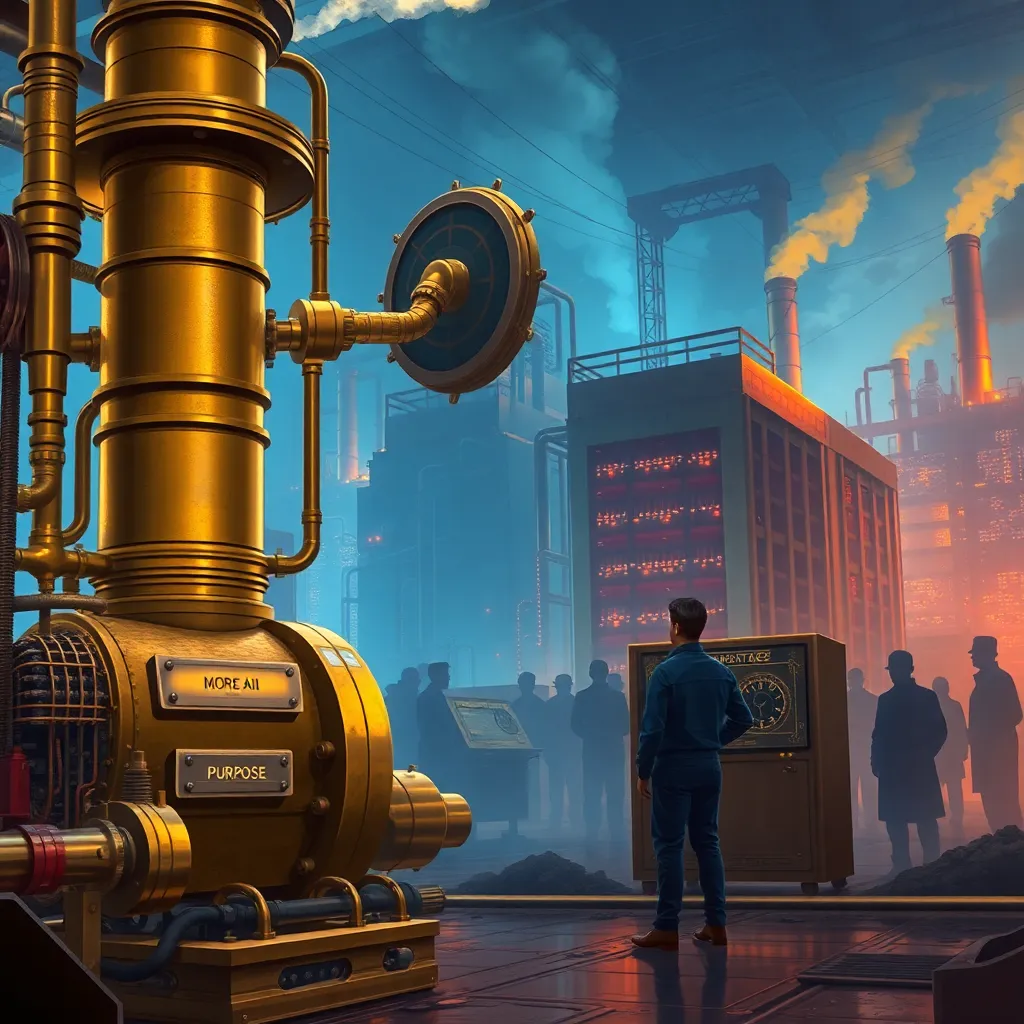The AI Paradox: When Efficiency Outpaces Vision

Why AI Could Save You Time—and Cost You Everything
In 1769, James Watt introduced a more efficient steam engine. It used less coal and delivered more power, a breakthrough that promised to reduce fuel consumption across Britain’s industries.
But something strange happened.
As Watt’s engine spread, coal usage didn’t fall. It exploded. Factories scaled production, and the demand for coal skyrocketed. the Industrial Revolution surged forward, and energy demand soared. Nearly a century later, economist William Stanley Jevons gave this phenomenon a name: the Jevons Paradox.
Making a resource more efficient doesn’t always reduce its use. It often increases it.
And today, that paradox is back with artificial intelligence.
AI is the steam engine of our time. It’s faster, smarter, and seemingly limitless. In moments, it can write code, design visuals, analyze behavior, and generate strategies. What once took entire teams now happens in seconds.
Companies everywhere are adopting AI to cut costs and increase productivity. But as with Watt’s invention, the unintended consequences are already showing.
The more AI simplifies work, the more we do. The more we produce, the more we consume. We don't always reduce costs, we shift them into bigger models, more infrastructure, and higher operational complexity.
AI promises efficiency, but without direction, it becomes a runaway engine.
This might seem counterintuitive. Shouldn’t efficiency create margin and control?
But when something becomes faster and cheaper, usage doesn’t stay the same, it rises. Demand expands. Expectations grow. The system accelerates.
The illusion of “saving” is replaced by a surge in scale.
Consider a startup adopting AI to speed up product development. At first, it gains momentum. It ships faster. Customers are impressed. But then, new features are rolled out faster than the market can absorb. Infrastructure strains. Model costs balloon. Quality dips. The startup becomes reactive, overloaded, and bloated.
AI didn’t solve the problem. It scaled it.
This is the modern Jevons Paradox in action. AI creates the illusion of control and savings, but without strategic direction, it invites overreach and drift. It multiplies output, but also multiplies oversight, noise, and risk.
More output requires more oversight. Faster launches lead to faster tech debt. Greater reach demands deeper infrastructure. AI doesn’t fix your business model, it magnifies it.
So the real question isn’t “What can we do faster?” but “Is this what we should be scaling?”
We often assume:
If I use AI, I can do more.
If I do more, I’ll have more.
If I have more, I’ll be successful.
But that’s backward.
True growth starts with becoming something worth scaling. A business must know what it stands for, why it exists, and where it’s going. Then, and only then, should it use AI to amplify that identity.
Without that foundation, AI won’t make you rich. It could make you broke faster.
The goal isn’t to automate everything.
The goal is to ask:
Where are we going and who are we becoming?
AI multiplies everything. It multiplies your clarity, or your confusion. It multiplies your direction or your distraction. And it multiplies your speed, whether you're headed up or off a cliff.
Efficiency is not the endgame. It’s the starting line.
James Watt powered an industrial revolution. But he also unleashed a tidal wave of resource consumption no one predicted. AI is capable of the same both creation and collapse.
If we want to lead in this new era, we must treat AI not as a finish line, but as a force to be shaped with purpose.
AI is not your savior. It’s your amplifier.
“You never change things by fighting the existing reality. To change something, build a new model that makes the existing model obsolete.”
— Buckminster Fuller
Enjoyed this piece?
Share it with someone who’s chasing AI without a roadmap.
Or reply and tell me: What are you building that’s truly worth scaling?
To lead in this new era, we must stop chasing speed and start building systems that deserve it. The future belongs not to those who move fastest, but to those who know where they’re going. The rest of us are just burning coal.